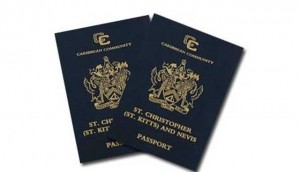 Brexit became a reality on January 31- Britain is no longer a part of the European Union.
Brexit became a reality on January 31- Britain is no longer a part of the European Union.
St. Kitts and Nevis has long enjoyed a reciprocal visa waiver agreement with the then 28 member- EU, where nationals from St. Kitts and Nevis can stay in the territory of the EU Member States for a maximum period of 90 days in any 180-day period without applying for a visa. The same goes for nationals of the EU visiting the federation.
Now that the United Kingdom, which is made up of England, Scotland, Wales and Northern Ireland, has left the EU, what does that mean for St. Kitts and Nevis nationals wishing to travel to the UK or Europe?
Under the terms of the implementation period or transition between the EU and the UK, the current rules on trade, travel, and business for the UK and EU will continue to apply during the transition period.
This lasts until December 31, 2020, after which it is envisioned that a new trade deal, security arrangements and immigration laws will will take effect on 1 January 2021.
With Brexit now a reality, St. Kitts and Nevis may find it’s visa waiver under scrutiny from the EU Council. In May 2019 two Members of the European Parliament wrote to the highest EU officials calling for the abolition of visa-free travel for passport holders of St. Kitts and Nevis. The MEPs expressed their concerns regarding EU’s visa waiver program with St. Kitts and Nevis, over “questionable” individuals getting passports under the federation’s Citizenship by Investment program. They claimed persons who had been blacklisted were using these passports to access Europe.
But there are other implications of Brexit, not just for St. Kitts and Nevis but the wider Eastern Caribbean Currency Union.
The Eastern Caribbean Central Bank (ECCB) pointed out that given the historical trade and investment linkages to the UK, the countries of the ECCU are likely to be affected by any negative shocks to the UK, EU and by extension the ECCU’s major trading partner the United States.
Looking at the economic impact of Brexit on the ECCU Member Countries the ECCB listed potential challenges with respect to trade, tourism, the financial markets, and remittances.
“The ECCU countries are heavily dependent on tourism, with the UK and the USA accounting for 22 per cent and 37 per cent of the stay over tourists respectively. The countries are also heavily dependent on foreign direct investment from these source markets. Many of the ECCU countries depend on remittances as an important source of income. As a result, any potential slowdown in the UK and/or the global economy due to Brexit raises questions about the extent of the spill over effects to the ECCU economies.”
Freedom FM reached out to St. Kitts and Nevis Foreign Affairs Minister, Premier Mark Brantley for the government’s views on the implications of Brexit on the federation, however he was at the time unavailable for an interview but agreed to speak on the issue in the near future.
